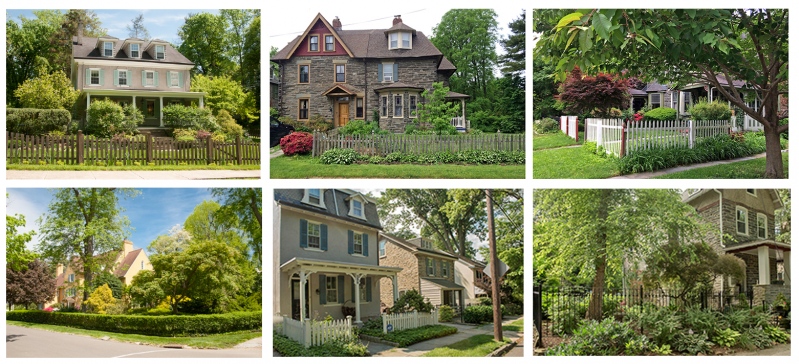Planning to Build a Fence?
As part of Philadelphia, Chestnut Hill is regulated by City zoning and building codes that apply to new and replacement fences. These regulations pertain to fence location, height, and opaqueness (degree of visibility through the fence). The contracts provided by many fencing companies make the property owner solely responsible for obtaining any necessary building permits, and the contracts often do not mention the need to check for compliance with zoning provisions. Some Chestnut Hill residents have had fences installed that subsequently triggered zoning violation citations, with steep penalties. An existing fence that has stood for several years and does not comply with current code is not in and of itself illegal, but it cannot be replaced in kind. Such fences are not "grandfathered in." The photos below show examples of fencing that would be permitted in Philadelphia under current zoning code.

Residential Yard Parking
As part of Philadelphia, Chestnut Hill is regulated by City zoning codes that maintain visually open setbacks free of vehicles. These regulations pertain to setbacks in front, side, and rear yards that are free of development and vehicle parking.
Chestnut Hill, by tradition, includes many properties that have no on-site parking, thus maintaining its quality as a walkable and transit-accessible ‘green-country town.’ We are pleased that the Zoning Code supports this tradition.
Some conditions do exist that would not be granted a permit by current zoning code. The photos below show examples of blocks have remained free of residential parking within the front yard setback.
Learn more about what to consider when developing residential parking